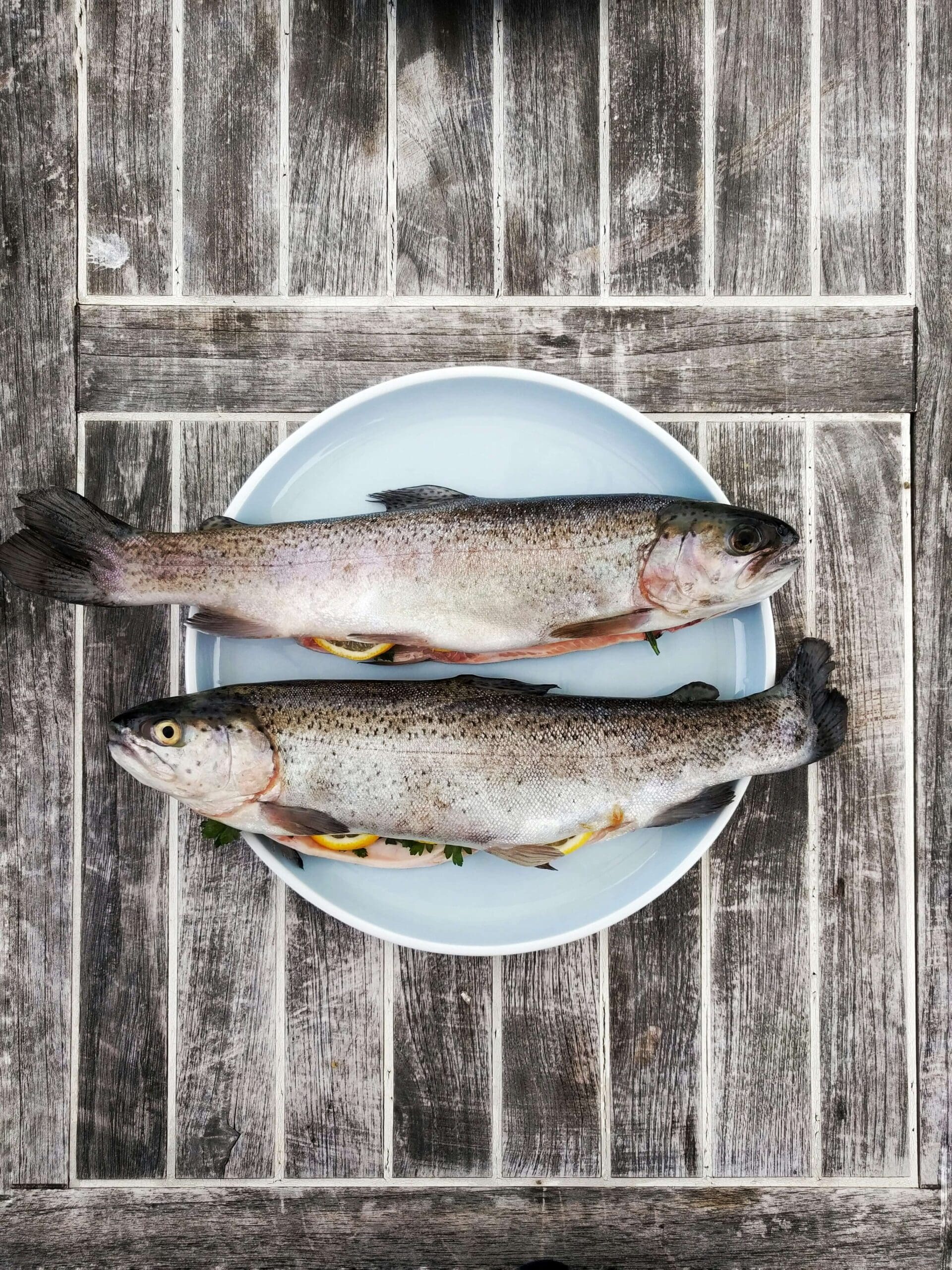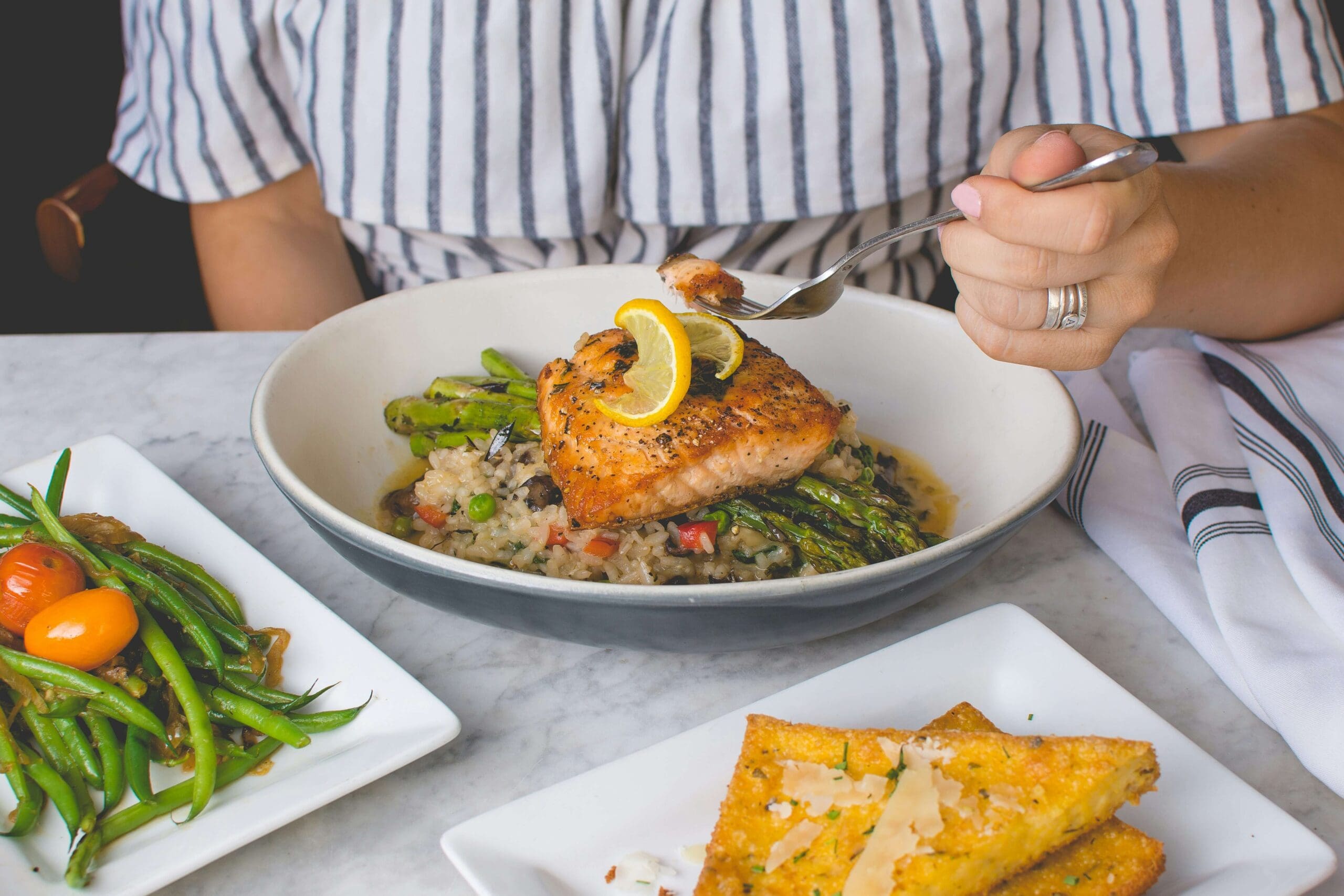Cancer worry shows up in many forms. Maybe you’re lying awake at night, convinced that a headache is something serious.
Or perhaps you’ve finished treatment months ago, but every small pain sends you spiraling back to that moment when you first heard the word “cancer.” You’re not alone in this.
Whether you’re worried about getting cancer for the first time or terrified it might come back, these fears are real and valid. The constant mental checking, the exhaustive internet searches, the inability to trust your own body, it all takes a toll.
But here’s what you need to know: while cancer anxiety is completely normal, it doesn’t have to control your life.
In this article, I will guide you on how to include evidence-based strategies that actually work to manage cancer worry, understand when anxiety crosses into clinical territory, and learn practical tools to help you move from constant fear to confident living.
Get Your Free Clean Scan Plan!
Join thousands who’ve transformed who’ve broken the fear loop and rebuilt confidence in how they eat. You deserve to feel empowered and confident about your cancer prevention goals, not anxious.
Understanding Cancer Worry and Health Anxiety
Cancer anxiety exists on a spectrum. Normal worry about cancer comes and goes, usually triggered by specific events like a doctor’s appointment or news about someone’s diagnosis.
This type of concern doesn’t interfere with your daily life. As your oncology dietitian, I see clients every week who struggle to separate normal caution from consuming fear.
Health anxiety about cancer is different. It’s persistent, intrusive, and significantly impacts your quality of life. Research shows that nearly half of people with cancer report significant distress, but not all distress is the same.
Healing isn’t just possible, it’s yours. Join the 1:1 coaching program and take back your strength step by step.
Cancer OCD vs. Illness Anxiety Disorder
Two main conditions drive excessive cancer worry. Illness Anxiety Disorder (formerly called hypochondria) involves persistent fear of having a serious illness despite medical reassurance. It affects about 0.1% of the U.S. population and requires symptoms lasting at least 6 months.
Cancer OCD or health concern OCD goes further. It includes both obsessive thoughts about cancer AND compulsive behaviors to reduce anxiety. The key difference?
Someone with an illness anxiety disorder worries they already have cancer. Someone with Obsessive-Compulsive Disorder performs specific rituals like excessive body checking or repeated doctor visits to manage the fear.
Common Triggers for Cancer Worry
Understanding what activates your cancer anxiety helps you manage it better. Several situations commonly trigger intense worry:
- New physical symptoms that seem unexplained
- Scan anxiety (“scanxiety”) before tests or while waiting for results
- Anniversary dates of diagnosis or treatment
- Media coverage of cancer stories
- Family history and genetic risk factors
One of my clients told me she couldn’t watch TV anymore because every cancer drug commercial sent her into a panic spiral. That’s when you know anxiety has crossed a line.
Why Does Your Brain Keep Sending Cancer Danger Signals?
Understanding how your brain processes fear helps you manage it better. Your brain’s threat detection system prioritizes safety over accuracy. It operates on a simple principle: “I’d rather keep us safe than be right. Let’s panic now and figure out the details later.”
Here’s the problem: this system is terrible with accuracy. It overreacts constantly. When it encounters uncertainty like the possibility of cancer, it goes into overdrive. To your threat detection system, a 1% chance feels like a 90% chance.
The Anxiety Cycle
Cancer anxiety follows a predictable pattern that repeats itself:
- Triggering event: New body sensation or symptom
- Anxiety sensations: Racing heart, sweating, chest tightness
- Automatic worry: “What if” thoughts and worst-case scenarios
- Compulsive behaviors: Internet searching, body checking, seeking reassurance
This anxiety cycle reinforces itself. The compulsions provide temporary relief but strengthen the original obsession, making the anxiety worse over time. As your oncology dietitian, I’ve watched clients get stuck in this cycle, especially around food fears that compound their cancer anxiety.
You don’t have to be scared of every bite. Snag the Cancer Prevention Bundle and feel safe in your body again knowing you are eating what does reduce risk and avoiding what increases cancer risk – as that is exactly what the Bundle shows you – what actually increases cancer risk (and what truly decreases it)
Fear of Cancer Recurrence in Survivors
If you’ve finished cancer treatment, fear of recurrence is probably your biggest worry. Fear of cancer recurrence is defined as fear, worry, or concern about cancer returning or progressing. Research shows that 31-52% of cancer patients experience this fear, with 24-40% reporting moderate to high levels.
As your oncology dietitian who works exclusively with survivors, I can tell you this: 100% of my clients have dealt with recurrence fear at some point. It’s one of the most normal parts of life after cancer.
When Every Ache Feels Like Cancer Returning
This is the most challenging part of fear of recurrence. People experiencing this fear often have anxiety about every pain, discomfort, or sensation in their body. Someone could have a foot pain and immediately think their cancer has returned, even when they logically know it’s not cancer.
The anxiety stems from not trusting your body anymore. One of my survivors explained it perfectly: “I spent 8 months in treatment feeling like my body betrayed me.
Now every twinge makes me wonder if it’s happening again.” Another client shared that she experienced severe chemotherapy side effects, and if she had to go through that again, she doesn’t know if she could handle it.
Take Control of Your Health Journey
Our Clean Scan Plan has helped thousands navigate their cancer journey with confidence. Get instant access to this valuable resource.
Evidence-Based Strategies to Stop Worrying About Cancer
Now let’s get practical. These strategies are backed by research and used by therapists, oncologists, and counselors who specialize in cancer-related anxiety.
Sit With the Fear (Don’t Fight It)
This sounds counterintuitive, but it works. Accept that fear of a new pain may last 1-3 days. Unless it’s a true emergency, it will likely go away. Sitting with anxiety instead of fighting it helps you feel less anxious next time.
In my coaching, I teach survivors this exact technique. One client told me: “I used to call my doctor 3 times a week about every sensation. Now I sit with it for 48 hours, and 95% of the time, it resolves on its own.”
Control Your Controllables
Focus your energy on what you can actually influence. Knowledge is power. Find out what symptoms to watch for, how likely recurrence is for your specific cancer, and what you can do to prevent it.
Understanding your risk factors for cancer helps separate real danger signals from false alarms. There are a finite number of things you can control. The rest you have to let go.
As your oncology dietitian, I show survivors in my programs how simple nutrition choices reduce cancer risk without giving up foods they love.
In my Cancer Simplified membership, we focus on controlling the controllables through evidence-based nutrition, not restrictive diets that fuel more anxiety.
Break the Dr. Google Habit
We’ve all been there: it’s 2 AM and you’re searching symptoms online. Internet searches are a double-edged sword. While helpful for learning about diagnosed conditions, scrolling can drive you into a tailspin down the rabbit hole.
Internet searches can’t replace a person’s visit because context is missing. There’s a lot of hysteria online, and it’s really hard to parse out good information.
Instead of searching for symptoms at 2 AM, channel that energy into something grounding. Learn how to break up with Dr. Google for good.
Reframe Uncertainty About Health
Learning to live with uncertainty is one of the hardest but most important skills. The terrifying truth: there’s no way to be 100% certain you don’t have cancer.
But accepting this intolerance for uncertainty is key. Treat automatic worry like background noise in a busy city. Acknowledge the thoughts without getting entangled or trying to control them.
Mindfulness and Relaxation Techniques for Cancer Anxiety
These techniques give you practical tools to calm your nervous system when anxiety hits.
Studies show that mindfulness-based interventions improve symptoms of anxiety in people with cancer today and survivors.
As your oncology dietitian, I recommend these techniques alongside nutrition strategies because true healing addresses both body and mind.
Focused Breathing Exercises
This is the simplest technique you can start today. Deep breathing signals your nervous system that you’re safe. Find a quiet spot, sit comfortably, and focus on your breath for just 5-10 minutes daily. When other thoughts pop up, gently bring attention back to breathing.
Progressive Muscle Relaxation
This technique releases physical tension that builds up from constant worry. Tense each muscle group for a few seconds, then release. Start at your head and work down to your toes. This reduces physical tension that accompanies worry.
Mindfulness Meditation
Mindfulness keeps you grounded in the present moment instead of spiraling about the future. Mindfulness helps you stay connected to the present moment rather than worrying about the future. It reduces stress and anxiety, lowers blood pressure, and improves sleep, all contributing to better health outcomes.
Lifestyle Changes to Reduce Cancer Worry
Your daily habits significantly impact your anxiety levels. Making small changes in how you move, eat, and spend your time can dramatically reduce cancer worry.
Physical Activity and Exercise
Movement is medicine for anxiety. Exercise reduces anxiety hormones, improves sleep quality, and boosts mood. It also provides a healthy distraction from worry. Learn more about exercise and cancer.
Nutrition’s Role in Managing Anxiety
What you eat directly affects how you feel mentally and emotionally. As your oncology dietitian, I’ve seen firsthand how nutrition impacts both cancer risk AND anxiety levels. Blood sugar stability, adequate protein, and anti-inflammatory foods all support mental health.
In my coaching, survivors learn to trust food again instead of fearing it. We work through the food fears that keep them up at night, replacing restriction with nourishment.
One client came to me eating only 10 “safe” foods, terrified everything else would bring back her cancer. Six months later, she’s enjoying meals with her family again and her anxiety about recurrence dropped significantly.
Meaningful Activities and Hobbies
Distraction isn’t avoided when done intentionally. Do something enjoyable and relaxing each day. Creative outlets like art, music, writing, or crafts help you focus on the present moment instead of worrying about cancer.
Practical Tips for Managing Scan Anxiety
Scan anxiety deserves special attention because it’s so common and so intense. Scan anxiety (“scanxiety”) is one of the most common cancer-related fears. Before scans at the recommended age or frequency for your cancer type, practice calming techniques and bring a support person when possible.
Coping During the Waiting Period
The days or weeks waiting for scan results feel endless. Try scheduled worry time. Set aside 15 minutes daily to worry, then redirect your thoughts the rest of the day. Maintain your routine and engage in distraction activities.
When you’re triggered, stop what you’re doing and implement a coping mechanism. Take 5 deep breaths, go for a walk, or call a friend.
For Cancer Survivors: Moving Forward After Treatment
Finishing treatment should feel like a celebration, but often it brings new anxieties. Here’s how to navigate this challenging transition.
The Paradox of Treatment Ending
It’s normal to feel more anxious when treatment ends, not less. People are often glad when treatment ends but may feel increased anxiety as they see their treatment team less often. This is completely normal. In my programs, survivors learn to build confidence in their bodies again through evidence-based nutrition.
Focus on What You Can Control
Shift your energy toward actions that support your wellbeing. You can’t control whether cancer returns, so focus on what you can do to support yourself: getting enough rest, reducing brain fog, participating in hobbies, and spending time with loved ones.
Practice Gratitude and Present-Moment Living
Gratitude doesn’t erase fear, but it helps balance it. Many survivors in support groups talk about the importance of gratitude. When feeling overwhelmed, they focus on things they’re grateful for, keeping gratitude journals to read during anxious moments.
Moving From Fear to Confidence
Cancer worry is a normal response to an abnormal situation. Whether you’re afraid of getting cancer or terrified of recurrence, these fears don’t have to control your life. The strategies in this article, from mindfulness practices to professional treatment, provide a roadmap for managing anxiety.
Remember: intense fear subsides over time. It may take months or years, but these fears will decrease. As your oncology dietitian, I don’t just help clients understand cancer nutrition. I walk beside them through the fear, the uncertainty, and the journey back to confidence.
You’re not alone, and you don’t have to figure this out by yourself. That’s exactly what your first step, the Clean Scan Plan, gives you: clarity, confidence, and control.
Ready to Feel More Confident About Your Scans?
Join thousands who’ve transformed their life with our Clean Scan Plan. This free guide provides everything you need to understand.
Yes! Send Me the Free Clean Scan Plan
References
- https://www.mskcc.org/news/how-stop-fear-cancer-its-tracks
- https://www.cancer.gov/about-cancer/coping/feelings/anxiety-distress-pdq
- https://my.clevelandclinic.org/health/diseases/9886-illness-anxiety-disorder-hypochondria-hypochondriasis
- https://www.treatmyocd.com/blog/constantly-worried-cancer-ocd
- https://brianlosullivan.com/worried-about-cancer/
- https://magazine.hms.harvard.edu/articles/helping-patients-cope-fear-cancer-recurrence
- https://www.mdanderson.org/cancerwise/how-to-manage-the-fear-of-cancer-recurrence.h00-159617067.html
- https://www.cancer.org/cancer/survivorship/coping/practice-mindfulness-and-relaxation.html
- https://www.cancercare.org/publications/54-relaxation_techniques_and_mindfulness_practices_coping_with_cancer
- https://www.cancer.org/cancer/managing-cancer/side-effects/emotional-mood-changes/anxiety.html




